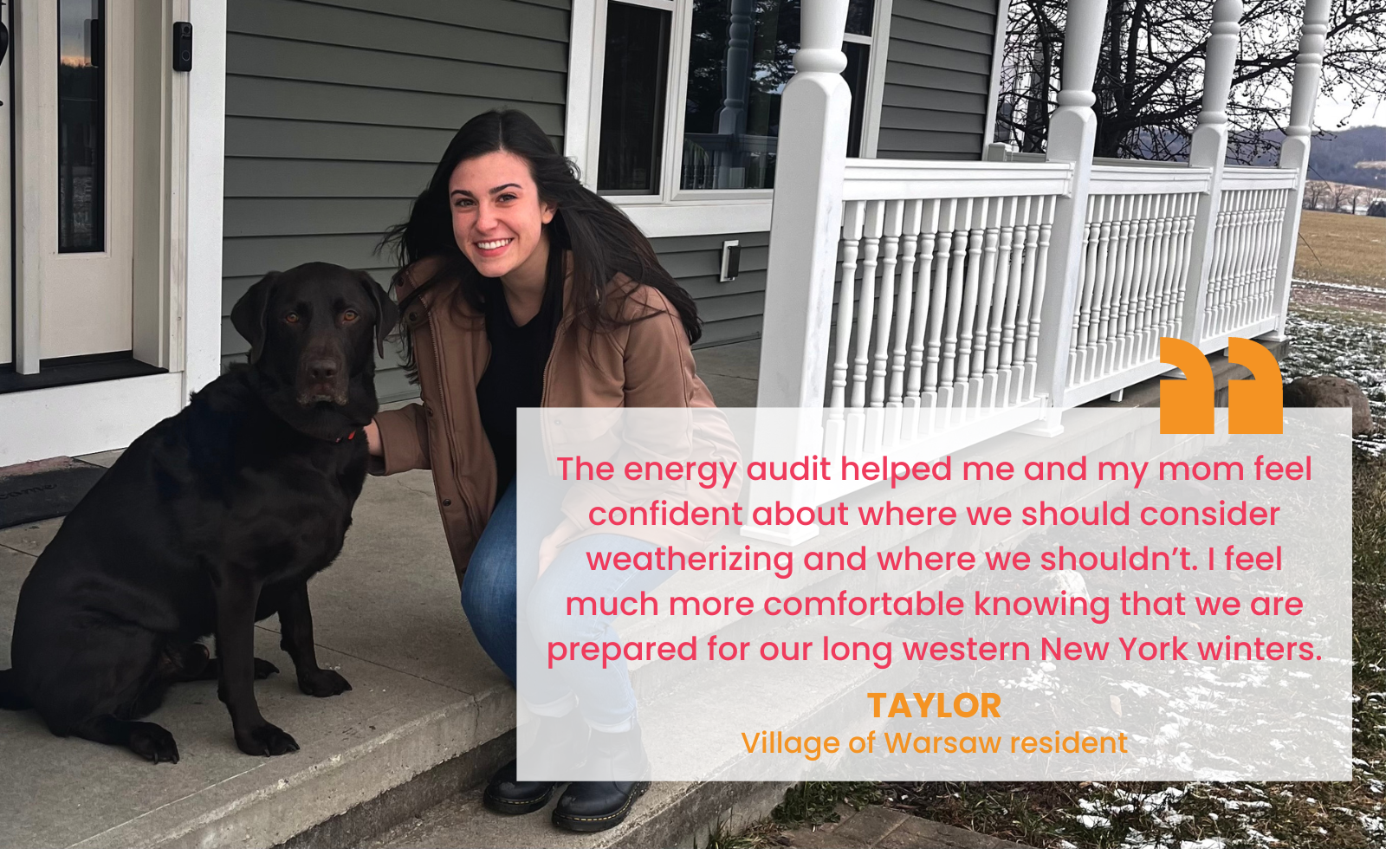
Weatherization & Insulation
Are you struggling with higher utility bills, notice ice buildup on your roof during the winter, or have a humid basement? Or are you looking to take advantage of incentives to help cover the cost of energy upgrades?
Weatherization and its benefits
Weatherization measures may involve sealing gaps and cracks that allow air to escape, upgrading the insulation in your attic, floors, or walls, or even upgrading your heating and cooling system; while also addressing health and safety issues.
More efficient - Weatherization increases the energy efficiency of your home, so you aren’t heating and cooling the whole neighborhood.
Energy savings - Weatherization can often lower your energy bill, saving you money.
Comfort - When your home is sealed, insulated, and well ventilated, you’re comfortable. No matter the season.
How do I know what my home needs?
A home energy audit will identify your opportunities for energy upgrades, check the health and safety of your home, and identify programs that can help cover the costs. It’s a great first step to improving the efficiency, comfort, and safety of your home.
What is a home energy audit?
During an energy audit, a trained and qualified contractor will look at each room of your home, and may use specialized equipment to identify places where heat or cold is escaping your home. They’ll ask you questions and talk you through what they see. The contractor may ask a few questions about your income, to identify which rebates and incentives you may be eligible for.
If there are recommendations to be made for your home, the contractor will give you a summary of what they suggest, which could include things like weatherization improvements (e.g. insulation, air sealing).
FAQs
(click to expand)
-
The Weatherization Assistance Program administered by NYS Homes and Community Renewal, reduces energy costs for low-income households by increasing the energy efficiency of their homes, while ensuring their health and safety.
-
A blower door test determines how much air is entering or escaping from your home, also known as a home's “airtightness.” Proper tightness has a lot of benefits, like avoiding condensation problems and uncomfortable drafts caused by cold or warm air leaking in from outside. It’s not part of every energy audit, but it’s important if you’re considering a heat pump.

